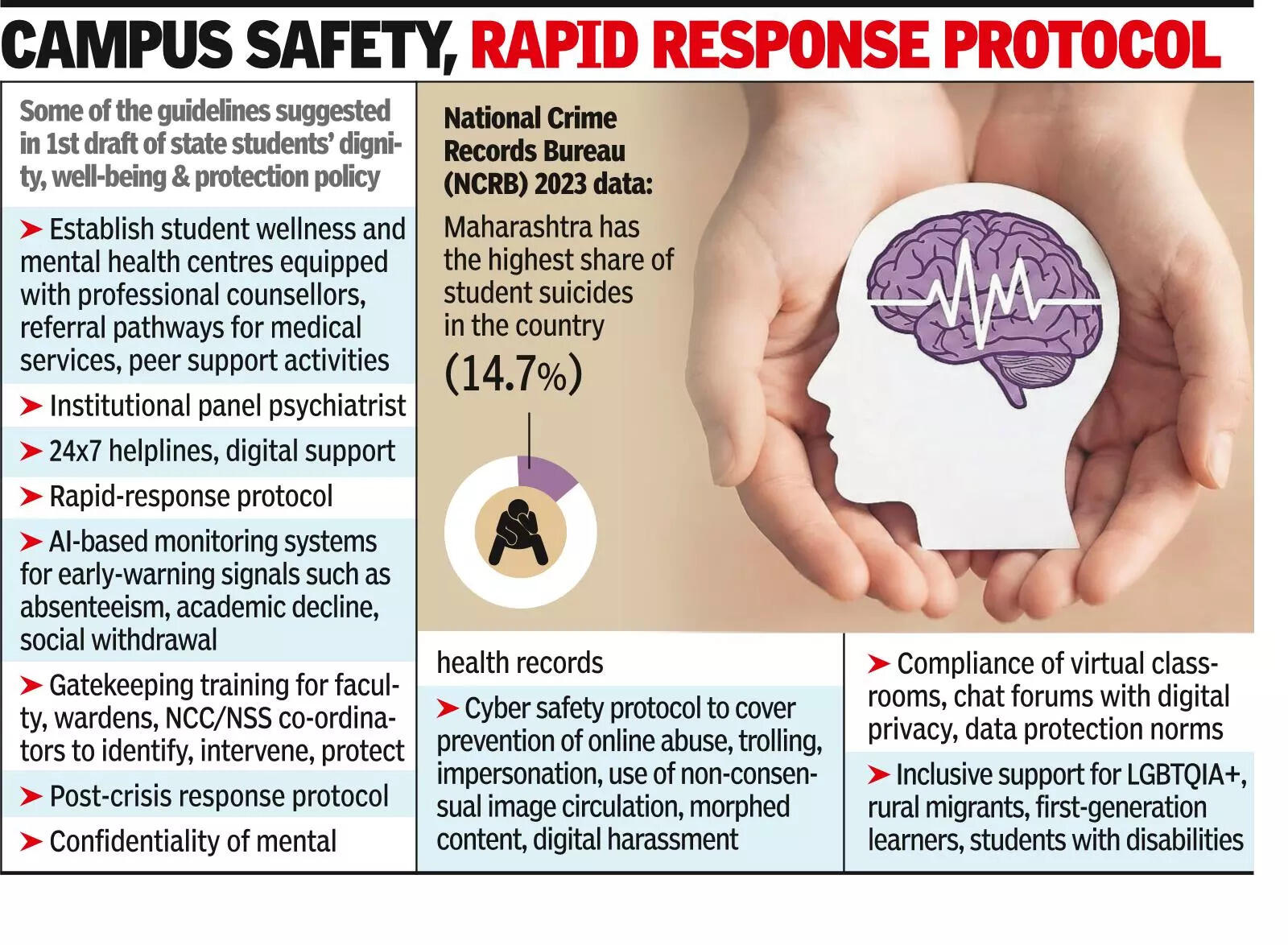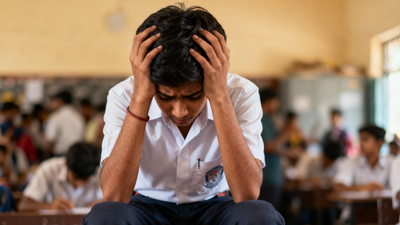MUMBAI: The state govt will soon roll out a first-of-its-kind, comprehensive policy aimed at safeguarding students’ dignity, protection and mental well-being across its higher education institutions (HEIs), amid a worrying surge in distress, harassment and student suicides.The draft framework takes a 360-degree approach to campus safety, addressing everything from abuse, ragging, cyberbullying, substance abuse and digital harassment, to the needs of LGBTQ+ students and first-generation learners. Some suggestions in the first draft talk about measures such as a 24×7 toll-free helpline, secure e-grievance systems and a rapid-response protocol for distress calls. Under cyber harassment, the draft also addresses emerging concerns over the use of deepfakes, trolling and online shaming, and even acknowledges the absence of digital safety cells.The draft policy, which will undergo further consultation and changes before final enactment, makes all state, deemed and private universities, along with affiliated colleges and hostels, legally obligated to transform their approach to students’ welfare and protection. It is being framed by an 11-member committee, appointed by the state govt, under the chairmanship of HSNC University vice-chancellor, Hemlata Bagla.

A member of the committee, Neha Jagtiani, principal, R D National College, and director, HSNC Board’s Bandra campus, stated they have proposed intensive gatekeeper training for faculty and staff so that early signs of student distress can be recognised and addressed with sensitivity. “The draft also highlights the need to eliminate any form of labelling or stigma around seeking counselling for mental health… The policy will place a strong emphasis on protecting vulnerable groups, including students who may face bullying, discrimination, cyber abuse or identity-based harassment. Clear preventive protocols, awareness initiatives and safe, confidential reporting mechanisms have been recommended…,” she said.The most important mandate for colleges will be to set up a dedicated student wellness and mental health centre, tasked with providing professional counselling, crisis intervention and resilience programmes. To ensure adequate support, it also suggests strict human resource requirements, such as appointing at least one qualified counsellor for every 2,000 students in urban HEIs and a higher ratio in vulnerable regions and institutions. A grievance redressal cell is mandated, which is expected to issue a reasoned, written order and communicate its decision on student complaints within a timeline of 30 days.The draft policy introduces a strict zero-tolerance approach to stigmatising behaviour, including the use of labels such as ‘suicide case’ or ‘depressed student’ under professional misconduct. It enlists serious consequences for institutional failure to respond to complaints. Institutional silence, delay or negligence that endangers safety will be a grave violation. Go to Source



